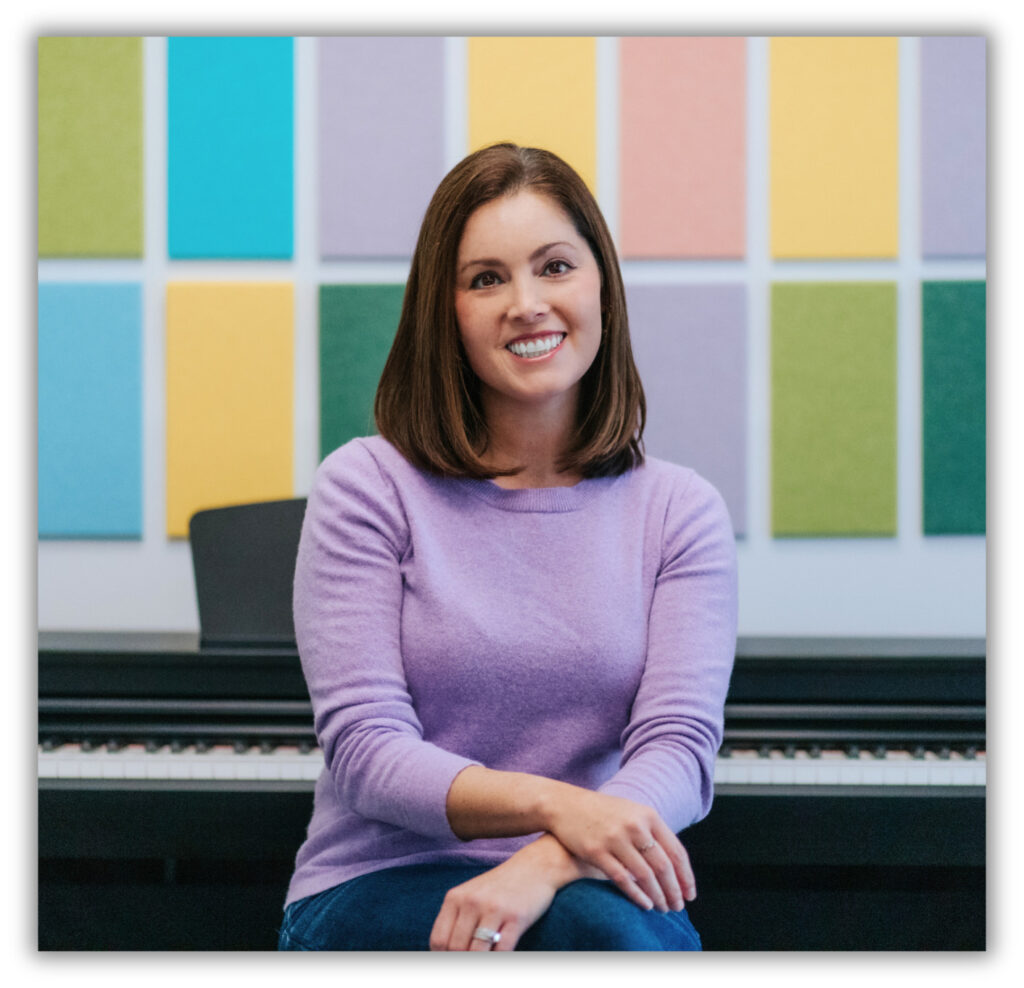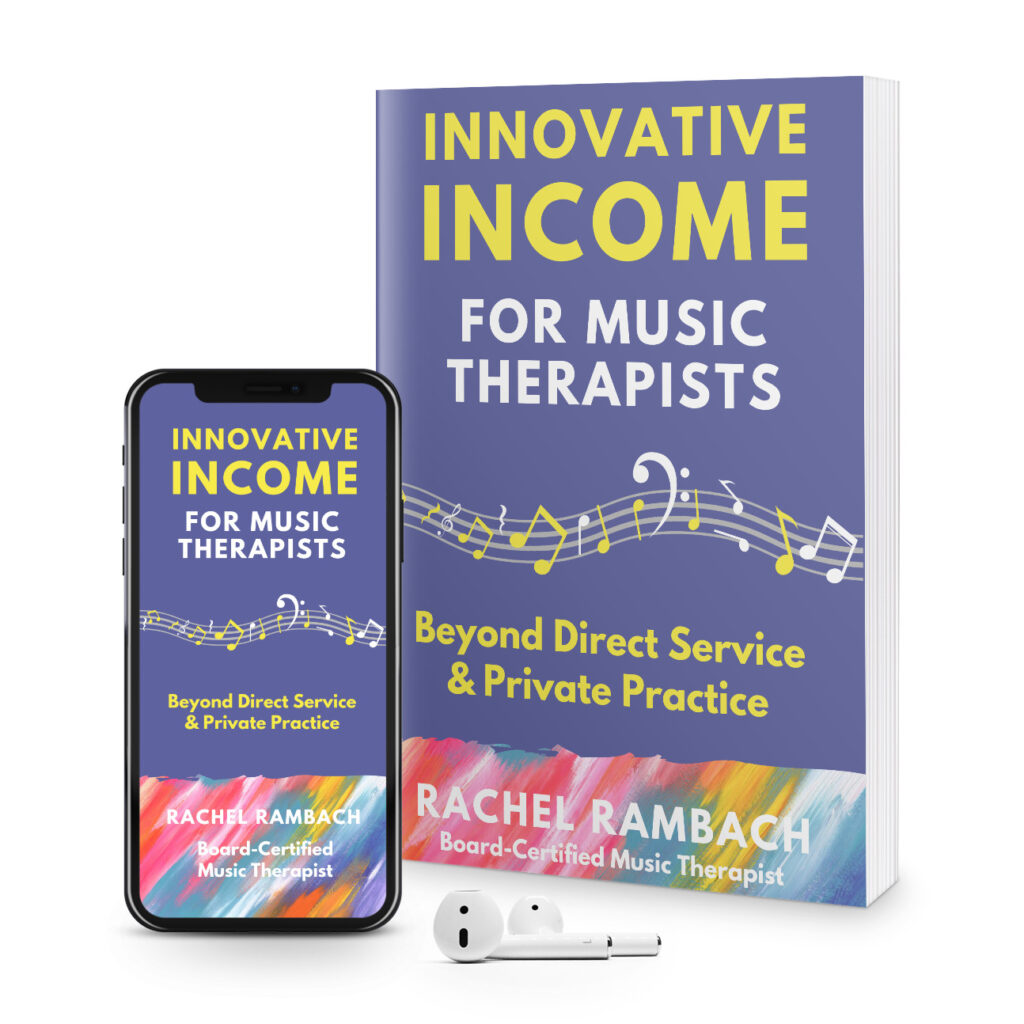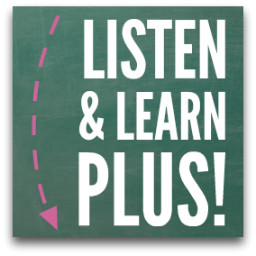by Rachel | Uncategorized

Want to read Part 2 of my “Adventures in Songwriting” series? Well then you’ll have to scoot on over to Wade Richards’ blog, Time for Music! There you can read all about the process I use to write my songs — and check out all of Wade’s great articles and music therapy resources.
So what are you still doing here? Go read Adventures in Songwriting: My Process and feel free to share the process that works best for you. Oh, and if you missed Part 1, you can find it here.
by Rachel | Uncategorized
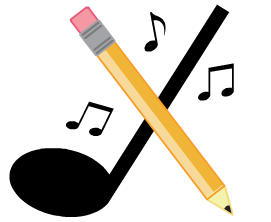
When people find out that I write my own music therapy songs, they usually have lots of questions. How did you start writing songs? Is it hard? Do you prefer using your own songs to others’ songs?
These questions came up again last week during a presentation for speech & language pathologists, and I made a note right then and there to share my thoughts here on the blog. So here it is: my “Adventures in Songwriting” series, starting at the very beginning (a very good place to start, if you ask Julie Andrews).
When I started my first practicum as a new music therapy graduate student, the first place I went for help was the internet. I’d never written a song in my life, and had no idea where to start. I was to work with seniors in a nursing home, so I typed “music therapy hello songs for seniors” into Google. Can you guess how many results that yielded? Yep…not many.
That was the moment I realized I was going to have to start writing my own songs. I started with a simple hello song, which ended up taking less time than learning an existing song would have. It wasn’t great, but I used it throughout that entire first practicum. Everyone seemed to enjoy it, and what amazed me most was that by the end of the semester, the whole room was singing along. To a song I wrote. It was a pretty cool feeling.
Even with a few successful songwriting experiences under my belt, I still didn’t feel 100% confident as a songwriter. I continued to rely on Google to lead me to songs I could use in music therapy practicum sessions. But the more specific the goals and objectives for my clients, the harder it was to find the right song that fit each unique situation.
It wasn’t until beginning my internship that I began to feel comfortable sharing my songs with people other than my clients. The positive feedback I received from my supervisors definitely helped, as did the fact that my clients were making progress because of the songs I was writing just for their needs. Not to mention that the more I wrote, the easier it got. Isn’t that the case with so many things in life?
In my next installment of this series, I’ll talk about the actual process I use to write my songs. In the meantime, if you have any songwriting questions you’d like for me to answer, please leave them in the comments!
by Rachel | Uncategorized

When I revealed my blogging goal of 365 posts in 2011, I received an influx of topic requests. A suggestion that came up more than once: how do you put yourself out there in the music therapy world upon graduating?
Being a new graduate is scary and overwhelming. But it’s those feelings of excitement and hope and promise that will push you in the right direction, whatever that may be for you.
I know, because I was there a mere 4 years ago. I had already finished my undergraduate degree in vocal performance, but music therapy was a whole new world (picture me as Jasmine flying through the air on a magic carpet). As I neared the midpoint of my nine-month internship, it hit me that I was on my own pretty soon.
So I told everyone I knew and everybody I met that I was going to be a professional music therapist soon. I talked to nursing home administrators, who offered for me to come visit and share music experiences with their residents. I emailed former teachers and principals, hoping they would have leads for me. I chatted up the manager at my local music store, where I had previously taught voice lessons. I spread the word at my church, where I was already on the children’s music staff.
And then in January, five months before I was to officially graduate with a masters degree in music therapy, I received an email from the principal of a school for children with disabilities. He’d heard through the grapevine that I was returning to Springfield soon, and was wondering…would I be interested in applying for the full-time music therapist position they’d just received a grant to fund?
Now I will admit that my story sounds like something out of a fairy tale, where full-time music therapy positions grow on trees and sunshine and rainbows fill the sky. But I have no doubt that the networking I did prior to receiving that email led to where I am now.
And it didn’t stop there. I got that full-time job, but I also continued to get phone calls from other people and places. A mom of a child with down syndrome, wanting to form a music therapy group for other families like hers. The Autism Program, wanting to offer music therapy services in the summer. Referral after referral for private adapted lessons, sent by the music store manager.
We always hear how important networking is in any career, but it’s even more so in a field as unique as music therapy. People remember you once they hear your story, what you do (or want to do) for a living.
Music therapists sometimes have to create their own jobs. And that’s okay. Scary, but wonderful and exciting and sky’s the limit. Our field has evolved in the short time that I’ve been in it, and it will continue to grow and expand and provide more opportunities for creative work. (You’re looking at one of them, right here on this blog.)
Now what stories and pearls of wisdom can you share with new professionals who are asking the question, “I graduated…now what?’
by Rachel | Uncategorized
 As secretary and program chair of the Illinois Association for Music Therapy, my duties include planning continuing education events twice per year. This winter, I’ve had the pleasure of working with faculty at the Old Town School of Folk Music in Chicago, where we will hold our upcoming five-hour CMTE, Multicultural Music for Music Therapists, next month.
As secretary and program chair of the Illinois Association for Music Therapy, my duties include planning continuing education events twice per year. This winter, I’ve had the pleasure of working with faculty at the Old Town School of Folk Music in Chicago, where we will hold our upcoming five-hour CMTE, Multicultural Music for Music Therapists, next month.
If you’re a music therapist in Illinois, please mark your calendars for Sunday, February 13th. OTS faculty will present the following workshops to music therapists in attendance:
- Children’s Songs En Español
- Blues Guitar
- Middle Eastern Music
Concurrently, members of IAMT will present informative workshops to attendees from OTS. Lunch will be provided to music therapists (included in registration fee). At the end of the day, both groups will meet for socializing and maybe even some jamming :)
This promises to be a wonderful event (and I’m not just saying that because I planned it!). If you’re interested and able to attend, you can download the full program and registration info below:
CMTE: Multicultural Music for Music Therapists
Early-bird registration (which includes a discounted cost) must be postmarked by February 1st. I sincerely hope you’ll join us. Oh, and please spread the word. See you in the windy city!
by Rachel | Uncategorized
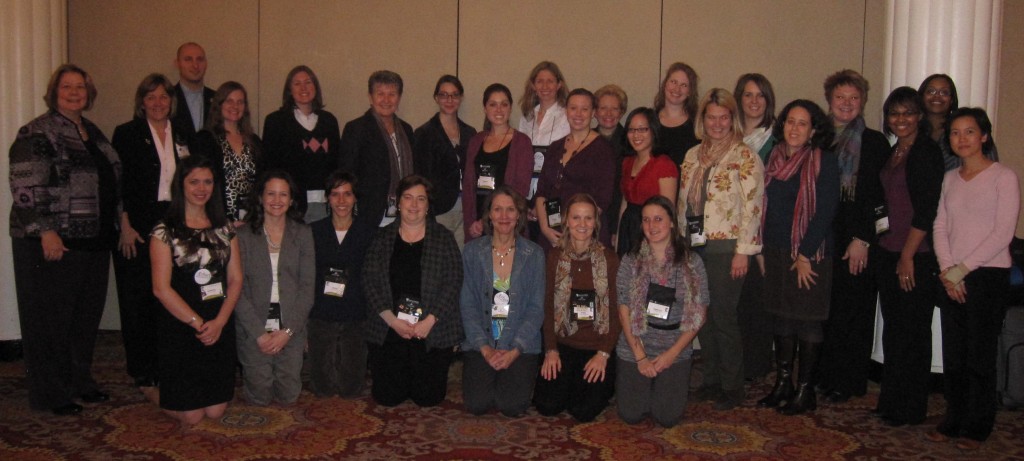
State task force members unite at the 2011 AMTA National Conference.
Silly me…that was literally my first thought when asked back in 2009 to join the Illinois Association for Music Therapy’s State Task Force. Our organization was in the process of submitting a bill to implement a statewide music therapy registry, and the committee is responsible for spearheading government relations.
Despite the word “government” striking fear in my heart, I agreed to join. And I’m so glad I did, because it turns out that government relations is all about advocacy, something I do for the field of music therapy on a daily basis anyway.
What is advocacy?
Advocacy is for everyone. It happens everywhere, any day of the week, any time you are engaging in a professional capacity. You can advocate at every level (e.g. from grassroots to state agencies and governors to national legislators). Any opportunity, any conversation is a way to advocate for the profession.
IAMT held a Lobby Day at the state capitol last March, and that day included visiting legislators to talk with them about our bill and music therapy in general. It was way less intimidating than I thought it would be, because I knew the topic well. The key is to know your audience and tailor your advocacy skills for that audience. It’s just like tailoring your clinical skills for different clinical populations.
The Next Steps
The State Recognition Operational Plan is a national initiative being implemented jointly by the Certification Board for Music Therapists and the American Music Therapy Association. The Plan involves increasing awareness of what it means to be board-certified. The ultimate goal is that, in all situations, the MT-BC be a minimum requirement as a service provision in every work setting.
For those of you who aren’t music therapists: let me explain the MT-BC (Music Therapist-Board Certified) credential. These are the letters that go after a music therapist’s name once he or she has completed a music therapy degree (including an internship) and passed the national board certification exam. There are individuals who call themselves music therapists, and are even hired as such, without having the proper training and experience. This can be detrimental to our field, as you can imagine, which is why the Plan was put into action.
Every music therapist can be a part of this initiative from a more personal perspective. By attending state meetings, reading and responding to state task force emails, and initiating communication with your individual state legislators, you can help to increase awareness of music therapy and the MT-BC credential.
And if you’re not a music therapist? You can still help. If you’re a parent of a child who has received music therapy, write to your state legislators about the positive effects of those services. The same goes if you are a colleague of a music therapist, or even just a supporter of the field. A little effort goes a long way!
Keep your eyes peeled for more ways to join the cause and advocate for music therapy throughout the blogosphere during the month of January. The Music Therapy Maven is a great place to start, along with my Facebook page and Twitter feed!






